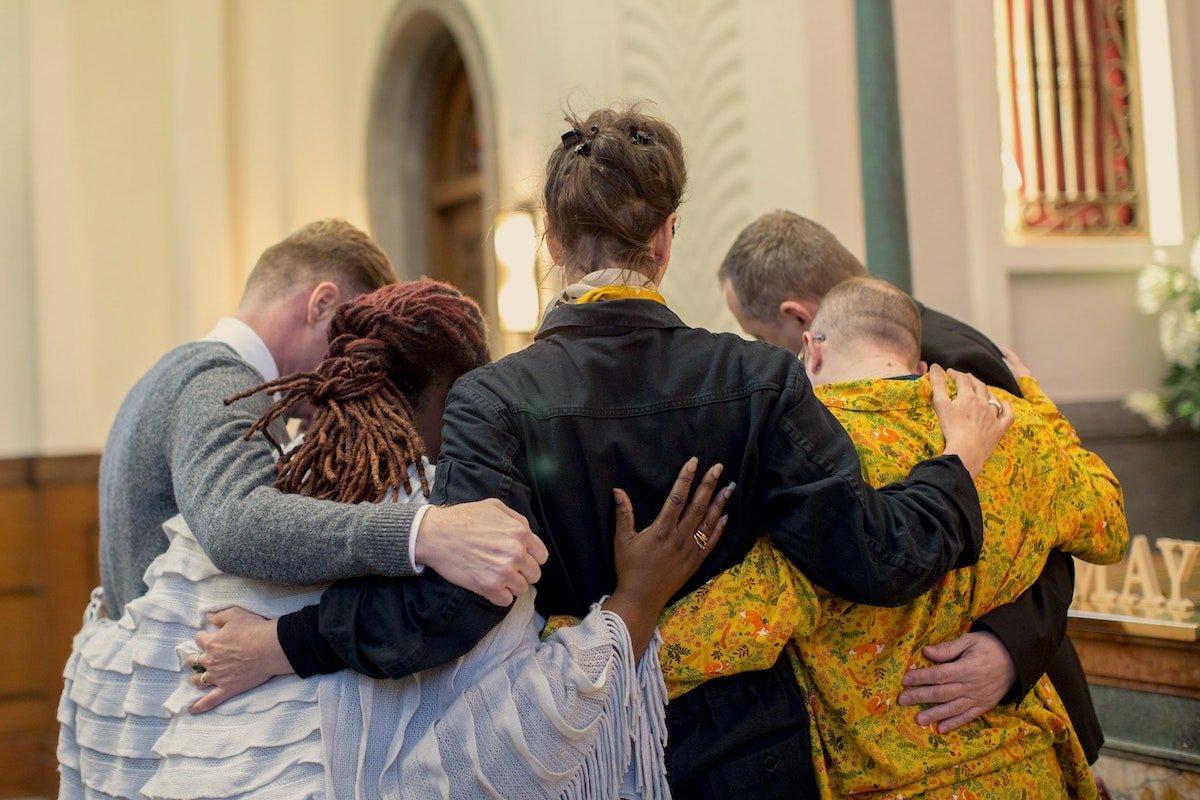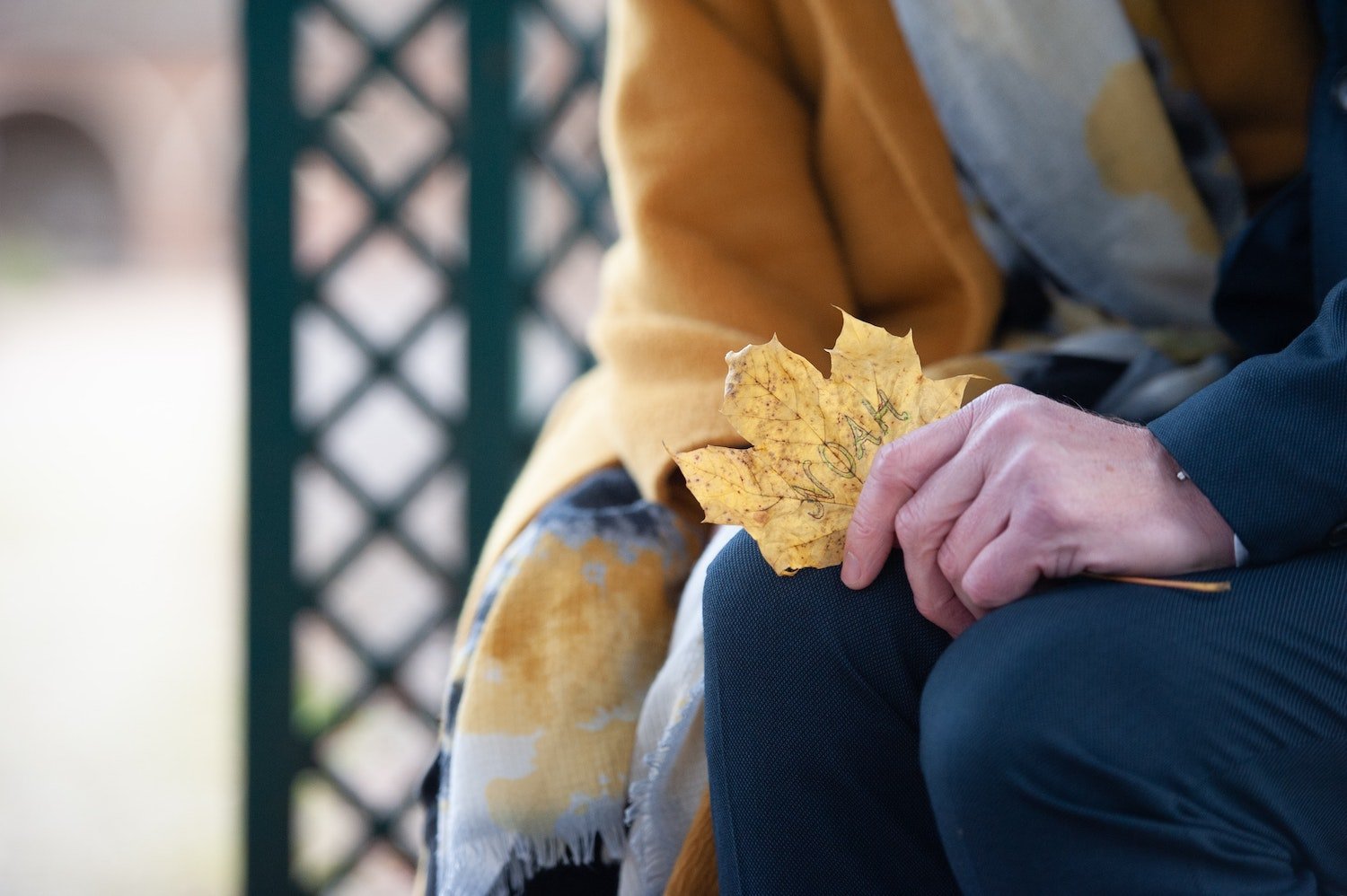When Grief Comes to Church: Grief and the Individual
This article is part 1 of the series When Grief Comes to Church. We hope it can provide comfort and resources to the individuals who feel grief most acutely and the church who cares for them.
Article 1: Grief and the Individual
Article 2: 4 Additional Griefs—And How to Find Hope Again
Article 3: 3 Ways the Church Ministers in Grief
Since the Spring of 2020, my church family has experienced more than our fair share of grief—but not for the reasons you might expect.
Shortly after the covid lockdown, our children's minister, Stephanie, passed away from cancer, leaving us to delay any communal funeral process.
That fall, one of the kindest families I know lost their 11-year-old son, Ty, in a tragic drowning accident.
Months later, the church member who handbuilt Ty's coffin lost his teenage son, William.
Even while writing this article, I received a prayer request for another family whose father had a fatal heart attack while riding his bike.
And our church is not large.
I hope this series can provide comfort and resources to the individuals who feel grief most acutely and the church who cares for them.
So, my community and I have become very familiar with grief and its impact in our midst. Unfortunately, grief is one of those things we will all face in various degrees during life "under the sun."
So, with the help of some dear friends, I've put together a series on grief. I hope it can provide comfort and resources to the individuals who feel grief most acutely and the church who cares for them.
Grief and the individual
Grief is a very personal process, the deepest parts of which words fail to describe. Though those who are grieving desperately need community, often only God knows the depths of the valley of the shadow of death for each person.
To do the individual experience of grief justice and to offer practical resources, I've largely drawn from a talk Liz Williams, Ty's mother, shared with our church. She shares her own journey in grief and what is most helpful to her.
The words from this point on will be a summary of her own.
Liz Williams
For those closest to its impact, grief is a tangled ball of emotions—not only sadness but also anger, guilt, fear, apathy, loss of identity, and up to 120 more feelings that are very common.
Because of the multitude of emotions, grief can feel very overwhelming and immobilizing. Many are tempted either to deny their emotions or drown them. However, the only way to get through grief is to go through it. The process of grief may feel impossible. But take heart: Grief is also holy ground.
“The process of grief may feel impossible. But take heart: Grief is also holy ground. ”
As the Bible says, "The Lord is close to the brokenhearted" (Ps 34:18), and, “Blessed are those who mourn, for they shall be comforted” (Matt 5:4).
A common experience of grief is “the thinning of the veil” to heaven. Suddenly, spiritual realities may become clearer. The despair of sin and death in our world are suddenly palpable. And perhaps for the first time, the bereaved understand just how essential and beautiful the hope of the gospel is.
Finding hope in the midst of grief
In everyday English, “hope” is used interchangeably with “wish." When used this way, hope implies a degree of uncertainty.—I hope I feel better tomorrow. I hope I get a raise. These things may or may not happen.
But in biblical use, hope is not wishful thinking; it is longing plus certainty. Because biblical hope is inextricably tied to God’s perfect character and His unfailing promises.
The trouble with grief is that God’s promises of heaven can seem so far off, especially when you don't know how you'll survive the pain of today. How does one continue to live when a piece of their heart has been ripped away? God gives the bereaved a way to process their pain through the gift of lament.
“We can bring our emotions—in all their rawness and complexity—to God through lament.”
Lament towards hope
The book of Lamentations understands this pain and points the bereaved to hope for today. Lamentations 3:20-21 says,
I remember my affliction and my wandering, the bitterness and the gall. I will remember them, and my soul is downcast within me.
Yet this I call to mind and therefore I have hope: Because of the Lord’s great love we are not consumed, for his compassions never fail. They are new every morning; great is your faithfulness. I say to myself, "The Lord is my portion; therefore I will wait for him."
“We hope in God’s mercies to meet our suffering each day and not let us be consumed by the pain of loss. ”
In other words, our hope for today is this: God’s great love. We hope in God's mercies to meet our suffering each day and not let us be consumed by the pain of loss.
In the prayer of lament, we can be completely honest with God. We can tell the Great Physician where and how it hurts; we can weep. We can boldly ask for healing, help, restoration, and the longings of our hearts.
And then, we remember. We remember who God is and the promises we stand on. We choose to trust even when we don’t understand. We choose to say things like: “You are God, I am not,” and “I will wait on you.”
When pain and promises are joined in prayer, the light of hope can slowly begin to shine in the darkness of grief. But it's not a process you can rush. The pain of loss isn't fixed by platitudes or even time. Grief is a pain that is only healed and transformed in God’s hands.
Through the deepest valley, He will lead.
In the next part of this series, we will delve into at some specific aspects worth lamenting and how to find hope in the valley of the shadow of death.
Grieve the separation.
Deal with (true or false) guilt.
Face your doubts and fears.
Lament the disorientation.
Again, the path of grief is complicated and different for every person, but God is always the same. He is the good shepherd, and His Spirit will lead us through the hills and valleys of life.
Liz Williams resides in North Carolina with her husband, Travis, and three children: Zoe, Zac, and Cali. Her oldest, Ty, went to be with Jesus in November 2020. Liz delights in exploring God’s creation, waking up to coffee and the Bible, laughing with friends, discipling women, exercising and writing. Liz holds degrees in Christian Education and Nursing.
Marie Burrus is UBA's Communications Specialist. She manages, edits, and contributes content for UBA's blog, website, and social media outlets.
We’ll send one succinct weekly email
with the best news, events, and info
for churches in the Houston area.
Photo: Melancholia by Romanian artist Albert Gyorgi.











What are the warning signs of burnout and what can ministers do to recover from or prevent it altogether?